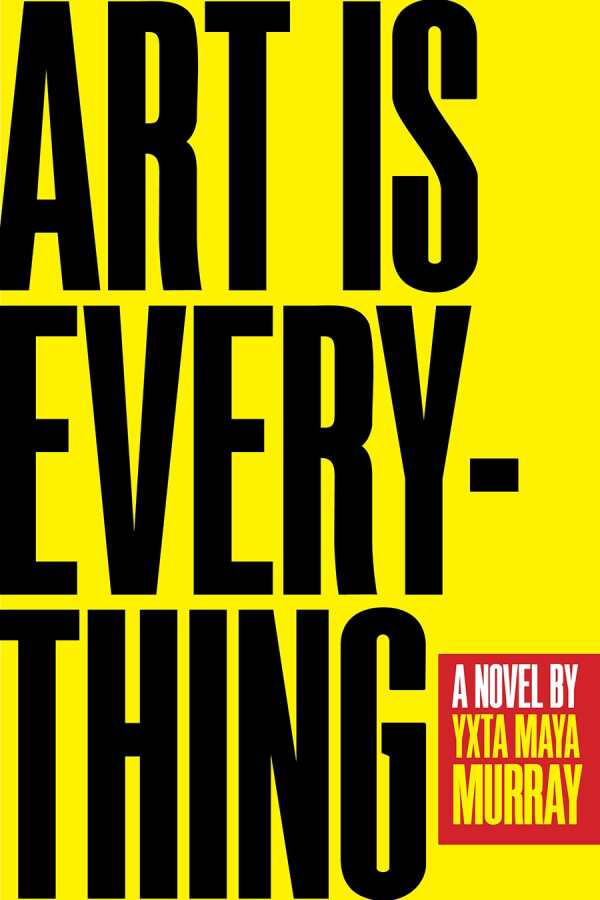Art Is Everything
Portraying an unsuccessful artist’s glide into washout and reinvention after capitalism’s unequal demands erode their ability to create, Yxta Maya Murray’s novel Art Is Everything is a candid critique of society’s usurious relationship with BIPOC, queer, and working-class women artists.
Narrated by Amanda, a Latinx, bisexual conceptual performance artist, the novel reads like an experimental, unauthorized didactic on the lived reality of marginalized artists and their relationship with institutions, whether they be the art world, the working world, or the expectations of a “normal” life. Its chapters include interstitial internet search histories with time and date stamps—raw glimpses into the anxieties of Amanda’s heart. These interludes undergird the chapters’ meat: bravura essays that blend confessional journaling with art criticism, which Amanda posts in the most inappropriate online places, from Wikipedia to the Met’s online catalogue.
Amanda exists among, and must negotiate in order to live, much less have any hope of doing her art, some tough realities. The contrasts between the different axes of access that Amanda inhabits are fascinating: the wealthy, swaggy dinner parties, gallery openings, and residencies, as well as occasional homelessness, lack of artistic remuneration, and a hand-to-mouth existence.
Throughout, Amanda struggles with the idea of freedom as a necessary component of artistry, and the tacitly male model of an artistic life without relational responsibilities is an ever-present ideal. When Amanda loses her girlfriend, who’s the love of her life, and her father at the same time, these twin losses counterpose the implication that art alone is everything. As Amanda navigates her own catalogue of losses, she questions what comprises art.
The novel evolves and transforms the idea that art is everything until it encompasses a state of being wherein art is the undeniable core of an artist’s existence and of all of the actions of their life.
Reviewed by
Letitia Montgomery-Rodgers
Disclosure: This article is not an endorsement, but a review. The publisher of this book provided free copies of the book to have their book reviewed by a professional reviewer. No fee was paid by the publisher for this review. Foreword Reviews only recommends books that we love. Foreword Magazine, Inc. is disclosing this in accordance with the Federal Trade Commission’s 16 CFR, Part 255.

